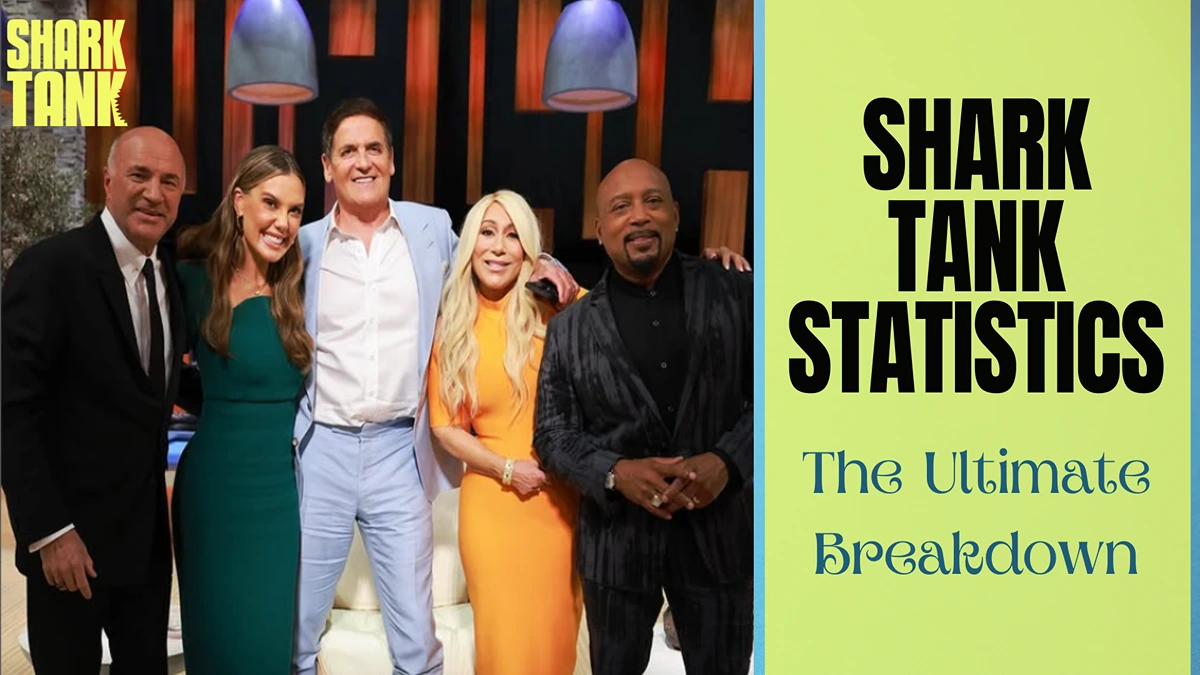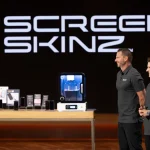
Shark Tank has telecasted a total of 16 complete seasons, with the 17th season yet to air. In every season, thousands of entertaining pitches are presented, some of which result in deals being closed with the Sharks. But, according to Shark Tank statistics, not every deal you see on TV actually closes in real life.
The thing is, the deals made on the show are not finalized on the spot. After filming, both parties sit together and discuss the business again thoroughly, and only then do they decide what they want to do.
Several technical factors influence whether an on-screen deal becomes a reality, such as the business’s financial documents, the product’s market demand, and even offers from new investors after the episode airs.
Shark Tank Quick Facts
Shark Tank has been running for over 16 seasons and has seen hundreds of entrepreneurs pitch their ideas. From massive investments to handshake deals that never closed, here’s a snapshot of the most important Shark Tank statistics every fan should know.
| Shark Tank Stats (Seasons 1–15) | Numbers |
|---|---|
| Total Episodes | 339 |
| On-Screen Deals | 828 |
| Real Deals Closed | < 50% |
| Total Investments | $200M+ |
| Largest Finalized Deal | $2.5M (Zipz Wine) |
| Most Active Shark | Mark Cuban (243 deals) |
| Best Follow-Through Rate | Barbara Corcoran (~60%) |
Overview of the Show
In the 15 seasons, 828 deals have been made on screen. According to Shark Tank Statistics, more than 50% of the pitches successfully impress the sharks and secure a deal. However, that is not always how things work out. Only a portion of these deals were finalized after the show.
Both the sharks and the founders consider their bigger profit when they thoroughly evaluate the deal after the on-screen pitch. Sometimes, brands that do not secure a deal on the show receive a call from the sharks later. One such example is The Bouqs Company—after returning home without a deal, Robert Herjavec reapproached the business sometime later for a partnership.
Shark Tank Statistics: Success Rate of Deals
We have established one fact very clearly: the deals aired on the show cannot be considered when counting the total number of successful deals. The real Shark Tank statistics show that less than 50% of the deals close in real life.
Most sharks back out of a deal when they review all the business documents or when they learn the actual numbers or market presence of the business among competitors.
Among all Sharks who have appeared on the show so far, Barbara Corcoran has actually followed through on most of her deals in real life, finalizing nearly 60% of her on-screen handshakes. This is a higher rate than her fellow Sharks’, which means other sharks have canceled more than 40% of their deals.
Investment Trends Overall
The total investments made by all the sharks sum up to over $200 million. This is due to different contributions by each shark in their choice of venture. Some were in exchange for large shares of equity, while others were made in the form of royalty deals or a combination of both.
From Season 1 to 15, Shark Tank had 339 episodes. At times, the Sharks invested over $20 million collectively in a single season.
Average Investment Sizes
Looking at the average amount of money invested each season, we see fluctuating trends. In Season 6, the sharks made the largest average investment, totaling $392,615.
For obvious reasons, the first season of the show witnessed the lowest average investment of $177,963. In the last season, Season 15 of Shark Tank, the average investment was $287,211.
Sharks and Their Investment Patterns
Each Shark has their own sense of inclination regarding their interest in a venture. Many factors are involved in the decision-making process, from the product to the business model; everything is considered.
- Lori Greiner has made deals with over 20% of the entrepreneurs she met on the show. With 223 deals, she could be considered one of the sharks most likely to make a deal.
- Then comes Mark Cuban, with 243 deals till Season 15.
- Barbara Corcoran has made the fewest deals, totaling 123, and has invested the least money among all the sharks. However, Barbara, the least active shark, is still the most reliable when it comes to following through on a deal.
Shark Tank’s Biggest Numbers
Zero Pollution Motors secured the largest on-screen deal in Shark Tank history, worth $5 million. However, this deal did not go as planned off the show.
Kevin O’Leary, aka Mr. Wonderful, made the largest investment that was finalized in real life. He offered $2.5 million to Zipz Wine, a single-serve, portable packaged wine.
In Season 12, a company called Chirp made the highest valuation deal for a business. They asked for $900,000 and offered a 2% stake in return, making it a $45 million valuation. After a tough negotiation with Shark Lori, the final valuation was settled at $36,000,000, and the deal was secured.
The highest ask valuation was made by Larq, a self-cleaning water bottle company. They set their valuation at $50 million. However, the final deal on screen was made with Kevin and Lori, who came together to offer $1 million for a 4% stake.
Shark Tank’s Smallest Numbers
In Season 1, Dr. Floyd Seskin appeared on Shark Tank with his business UroClub, a brand that makes one of the most questionable products, an unusual golf club cum portable urinal. The product allows golfers urgent relief on the course. The founder originally asked for $25,000 for 51% of his company. Kevin Harrington set the valuation at $37,000, to which the entrepreneur agreed.
In Season 3, entrepreneur Steve Gadlin asked for the lowest valuation to date. He set the valuation at $40,000 for his company, I Want to Draw a Cat for You. Mark, in response, offered $25,000 for 33% of the company, saying he understood the business. They celebrated the closing of the deal with a dance.
Impact on Entrepreneurs
When a deal is not followed through after the show, it is not always because the shark backed out. Many times, entrepreneurs themselves withdraw from a deal or request changes. This happens due to various reasons that arise after their appearance on Shark Tank, or as a result of the “Shark Tank Effect.”
- Businesses that appear on the show frequently experience increased brand recognition and sales. They attract more customers than before and may no longer feel the need for outside investment or a mentor.
- Entrepreneurs often use Shark Tank as a marketing platform, so even if they don’t secure a deal, they know the show provides enough publicity for growth.
- After appearing on Shark Tank, many businesses find alternative investors who offer them even better deals, leading them to back out of their “on-screen” agreements.




















